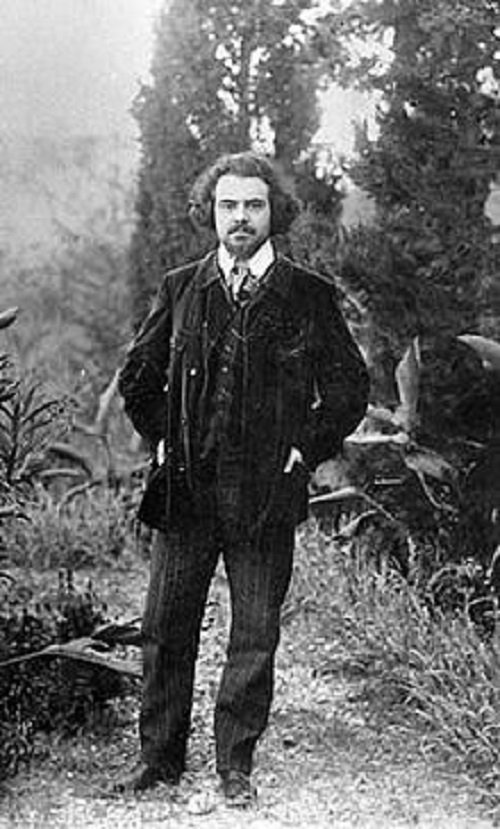Nikolay Berdjaev was born in Kiev in a family from the upper layer of Russia. Originally by family tradition, he studied in the cadet corps, but suppressed by the military order, he went to Kiev University first in the natural sciences and later in the law faculty. Berdjaev is attracted to the social problems, he participates (as a lecturer in philosophy) in the largest Marxist circle in Kiev, he is also involved in the workers' movement. In each of these books, the Russian philosopher reveals to the reader the specific viewpoints underlying the problems and disparities found there. It is important to note that Berdjaev's works are attended by two factors, two terms, which are the starting point for many of his works, and in particular the Philosophy of Freedom. Creativity and freedom. Freedom (alongside with creativity) is a leitmotif in Berdjaev's philosophy, almost all of his philosophical circles around this subject, and besides, it is also directly formulated in the titles of not one of his books. Berdjaev places in the center, the basis of philosophy not being, but freedom, so the book in which he seeks to express his views is called the Philosophy of Freedom rather than "Philosophy of Being" because freedom is higher instance, it incorporates being. According to Berdyaev, the problem of freedom starts from the very structure of the human personality, from its structure, in which the depth of the "self", which can only communicate, but not communicate, must differ.
A major role in Berdjaev's philosophy is Russian totalitarianism. The book examines in detail the effects of freedom from the aforementioned factor. According to Berdyev, freedom is not easy and light, as its belligerent enemies think - on the contrary, it is difficult and a heavy burden. Freedom is the right and duty of man. The author argues that this fact is unwelcome to be seen by those who want to exploit it for personal gain. Freedom is equally necessary for all spheres of human activity - cognitive and social, ethical and aesthetic. First of all, the idea of freedom inevitably faces the idea of equality of people. According to Berdyev, the two notions of "freedom" and "equality" are irreconcilable. In his being a man is free, but there may be no identity, equality. Conversely, it is also possible to reverse the subject - the being is present, one is equal to the others, but it is not free. There is no moral, ethical freedom underlying philosophical sociology. That is why Berdjaev is satisfied with the philosophy of freedom, not just freedom. The philosophy of freedom here does not mean exploring the problem of freedom as one of the problems of philosophy, freedom here does not mean an object. The philosophy of freedom means philosophy of free, philosophy based on freedom, contrary to the philosophy of slaves, freedom means the state of the philosophical subject. Free philosophy is religious philosophy, intuitive philosophy, philosophy of the real. Freedom can not be inferred from anything, it can be thought of.
The basis of this book is based on the established truth. Unquenchable faith in mystical worldview, mystical perception determine the character of the book. Sam Berdjaev argues that the writings in this book do not claim to be scientific, they claim authenticity. His claim is justified by the fact that the truth is not revealed by him, but because he professes the religion of Christ. According to Berdyaev, science is neither the only nor the last criterion of truth. Freedom lies in the truth. The truth itself may not have a strictly rigid, scientific explanation, supported by facts, therefore freedom and science may not have a definite relationship to each other. The truth is that it is the basis of religious beliefs and is central to one religion, that is, freedom and religion are inextricably linked. If it is to be a component in Berdjaev's work, which is of immense importance and importance, it is inevitably religion. A distinction has to be made: the religion as a belief in the mystical and real beginnings and religion, which is studied philosophically and has a special importance for the author.

very good and interesting description.
this can add to my knowledge thanks.
you are welcome :)
You got a 13.08% upvote from @postpromoter courtesy of @godflesh!
Want to promote your posts too? Check out the Steem Bot Tracker website for more info. If you would like to support the development of @postpromoter and the bot tracker please vote for @yabapmatt for witness!
Godfleshed. Philosophy and Religion.
I have read your post and i am impressed for the original content/pictures you have used. Keep up the good work.
You can follow me @rajrajput
Thanks
This philosopher spoke about Christianity, stating that through religion man has made a greater spiritual revolution.
Spiritually liberating man from the unlimited power of society and the State, has brought him closer to Divine Freedom.